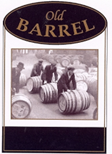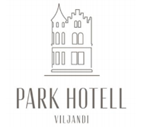We invite you to have a look at the 52nd issue of Turvaja newsletter.

Newsletter No. 34
December 2020
Decisions of the Estonian Industrial Property Board of Appeal
I Oppositions
Decision No. 1860-o
Earlier trademark

Opposed trademark
Seven Old Barrels
Opposition to registration of the trademark “Seven Old Barrels”.
The Board notes that the applicant has not acknowledged receipt of the opposition.
However, it is not reasonable to assume that at the end of the trademark registration procedure, the applicant’s contact details will become irrelevant, i.e. the applicant will “disappear” when their application is contested after two months. In essence, this would amount to a presumption of bad faith on the part of the applicant, which would not be acceptable.
The Board emphasizes the importance of the applicant’s experience a few years ago with a different opposition in which the applicant actively participated.
The Board finds that the opponent’s assertion that the registration of the contested mark “Seven Old Barrels” in Class 33 is confusingly similar to the applicant’s earlier mark “Old BARREL + device” is not manifestly unjustified.
The opposition was sustained.
Decision No. 1860-o
Earlier trademark and business name
KIPSIVALU OÜ
Opposed trademark

Opposition to registration of the trademark “Kipsivalu ROXMAR + device“.
The Board considers that the term “kipsivalu” (plaster casting) is inherently descriptive and non-distinctive in the context of construction services in Class 37. The fact that a word does not exist in dictionaries does not exclude the potential descriptive nature of said word. Trademark law does not provide special rights for persons who are the first to develop or introduce descriptive and indistinguishable marks.
The Board considers that the advertising and sale of the goods and services covered by its trademark is a natural part of the economic activity of any undertaking, and does not necessarily demonstrate that the trademark is well-known.
Although six Estonian legal entities have signed letters of confirmation stating, inter alia, that the mark “KIPSIVALU” is a distinctive mark of the opponent’s services, it is not possible to draw conclusions about the wider perception of the relevant sectors in Estonia on the basis of merely six statements. In the Board’s view, it is also clear that the individuals in question did not express their perceptions spontaneously, but that they were assisted in that regard.
The Board notes that the Commercial Code does not impose the same conditions and restrictions on the choice of a business name as the Trade Mark Act does upon trademarks. Thus, the registration of a business name in the commercial register does not in itself guarantee that the mark in question is capable of functioning as a distinctive trademark for the goods or services of the undertaking concerned.
The opponent is not entitled to restrict the use of the mark “kipsivalu” for third parties whose services are related to plaster casting.
The opposition was rejected.
Decision No. 1852-o
Earlier trademark
PARK
Opposed trademark

Opposition to registration of the trademark “PARK HOTELL VILJANDI + device”.
According to the Board, the applicant has presented convincing evidence from which it can be concluded that the word “PARK” is an element with a very low degree of distinctiveness in the context of hotel and accommodation services. The use of the word “PARK” in connection with accommodation services is common and customary in Estonia, and does not constitute a mark that can be associated only with the opponent.
The element “PARK” may create an association for consumers of accommodation services that the correspondingly marked hotel or other accommodation establishment is located in or near a park, or that it has a view of a park, which in turn refers to the characteristics of the service and not so much to the service of one particular company. Nor does the Board consider irrelevant that the case-law of the Court of Justice of the European Union has already analysed the word element “park” in the context of accommodation services and found it to be particularly suggestive or even descriptive (T-510/14 and T-536/14, paragraph 76).
The most dominant and distinctive component of the applicant’s combined mark is the representation of the building at the top of the mark, which is also the most visually prominent element in the applicant’s mark. The opponent’s mark does not contain such or a similar element. The trademarks “PARK” and “PARK HOTELL VILJANDI + device” are not similar in their entirety to such an extent that consumers could be misled.
The opposition was rejected.
II Appeals
Decision No. 1846-o
Appeal against the partial refusal to register the trademark “RAHAPÄEVIK”.
The Board agrees with the Patent Office that the trademark “RAHAPÄEVIK” (money diary) is inherently descriptive of the relevant goods and services, and inherently non-distinct.
Nevertheless, the Board considers that the appellant’s complaint is well-founded in its entirety. The unlawfulness of the decision of the Patent Office is evident in particular with regard to the fact that the examination proceedings omitted the web links submitted as evidence by the appellant, and with regard to the fact that the Patent Office did not properly analyse the claim of the mark being well-known.
The Patent Office should not have simply ignored the web links presented as evidence in the examination proceedings, but the appellant should have been given an explicit opportunity to present all the evidence in a permanent secure form instead of the links. Even if the evidence provided does not meet the requirements clearly set out in the legislation, the principle of good administration should, as a general rule, inform the party concerned of the deficiency and give them a deadline to remedy said deficiency.
In a situation where the appellant relies on the reputation of the mark in the business sector dealing with those goods or services, the Patent Office must assess, inter alia, whether the business sector concerned can be limited to members of the Banking Association, as asserted by the appellant, or if it should be considered more broadly.
The appeal was sustained.
Decision No. 1834-o
Appeal against the partial refusal to register the trademark “IT365″.
The Board considers that, in order for a service to be considered to fall within the field of information technology, the name of the service itself does not have to include a reference to information technology. It is sufficient if the services in question are traditionally provided in the field of information technology.
The Board agrees with the Patent Office that the element “365” is generally associated with the meaning of the year by the average consumer and considers that, in particular in conjunction with the element “IT”, the mark gives the impression of referring to year-round IT services. Even if ensuring the day-to-day availability of IT services should not be widespread in practice, the fact that the mark “IT365” conveys the message that IT services are available 365 days a year remains unchanged. If, in practice, the appellant’s services are not available 365 days a year, the potential misleading nature of the sign could come into question instead.
Whether a trade mark is one-of-a-kind, unique or original, it must nevertheless be distinctive. Regarding the appellant’s mark, the Board considers that those conditions have not been met.
The appeal was rejected.
Decision No. 1817-о
Appeal against the partial refusal to register the trademark “CARAVAN”.
The Board found that, although the Patent Office correctly acknowledged that the word “karavan”/“caravan” could be used in the meaning of “camping caravan” in Estonian, on the basis of the evidence gathered during the trade mark examination procedure it has not been sufficiently considered why, in the context of use, the appellant’s trademark cannot be granted legal protection in respect of the refused Class 39 services.
In the absence of a well-established market for travel services for caravan-type vehicles, consumers are unlikely to have any particular expectation with regard to the mark “CARAVAN” that the travel services provided under that mark will be linked to travel services for caravan-type vehicles.
According to the Board, the service of organising visas, passports or other travel documents does not have the characteristics of travel management services specifically for caravan-type vehicles. Consumers therefore have no expectation that, in the context of the service of organising visas, passports or other travel documents, the sign “CARAVAN” will be used to designate the service of organising documents specifically for caravan travel.
The Patent Office has not sufficiently substantiated the decision to refuse registration. In order to refuse in circumstances excluding legal protection, the Patent Office must have more weighty reasons and evidence than merely those arising from the fact that consumers can organise caravan trips themselves.
The appeal was sustained.
Decisions of the Domain Disputes Committee
Case No. 20-1a-336
Opposed domain name: tervisekassa.ee
The Board found that the transfer of the domain name tervisekassa.ee to the opponent was not justified.
It emerges from the dispute that the Estonian Health Insurance Fund (Eesti Haigekassa) acquired a shareholding of Tervisekassa OÜ through a related party in order to secure the name change of “Eesti Haigekassa” to “Eesti Tervisekassa”.
The opponent found that “Tervisekassa” is a translation of the name of Eesti Haigekassa in English (Estonian Health Insurance Fund), but in the Board’s opinion such an approach is incorrect. As this is the official name of the authority in English, it is not reasonable to assume that it will be translated back into Estonian any other way than using the official Estonian name of the authority, “Eesti Haigekassa“. In addition, even the direct translation would be different from the suggested “Tervisekassa”.
The Board considers that the discussions in 1991 before the Riigikogu (Parliament) regarding the possibility of choosing “Tervisekassa” as the name of the Estonian Health Insurance Fund did not matter when registering the Domain Name in 2013, nor now, at the time of the decision.
The Board considers that the opponent’s conduct may instead indicate an attempt of reverse domain name hijacking.
The opposition was rejected.
The material provided in this newsletter is for informational purpose only and does not contain legal advice.
For additional information please contact our patent agency:
Patendibüroo TURVAJA OÜ
Liivalaia 22
Tallinn 10118
Estonia
We invite you to have a look at the 51st issue of Turvaja newsletter.
We invite you to have a look at the 50th issue of Turvaja newsletter.